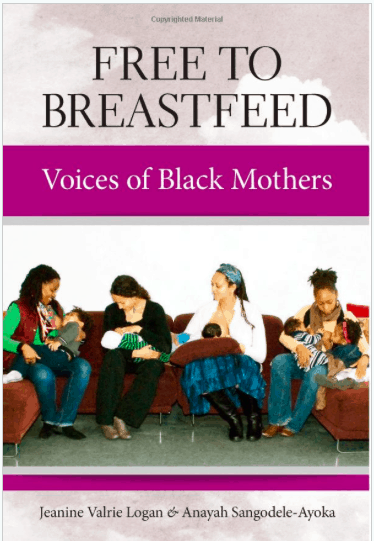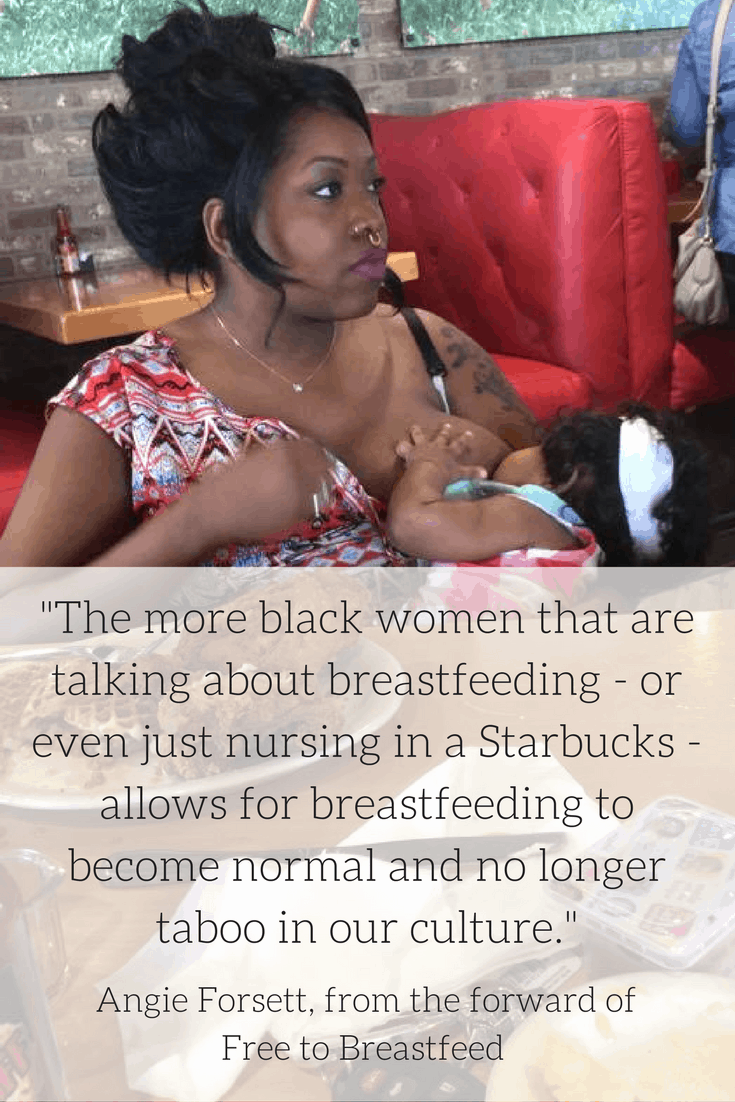Free to Breastfeed: Voices of Black Mothers, Book Review
Free to Breastfeed: Voices of Black Mothers
by Jeanine Valrie Logan & Anayah Sangoele-Ayoka
As doulas, part of our role is to provide general information, tips, and help with getting our clients started breastfeeding. It is important for us to take into account the societal and cultural factors that could present possible hurdles for our clients who choose to breastfeed. That is why I was so excited to read Free to Breastfeed: Voices of Black Mothers. The book (available on Kindle or paperback) is a collection of stories, essays, poems, and email conversations from a wide variety of black mothers. They all share their unique experiences and perspectives regarding their personal breastfeeding journeys, with all the ups, downs, joys and challenges that most women who breastfeed eventually feel. The book is broken up into six chapters covering topics such as the legacy of breastfeeding, myths and barriers, troubleshooting problems, stories of empowerment, and the eventual ending of the breastfeeding relationship. The book ends with a collection of useful terms and resources, as well as profiles for each of the contributors.
The authors compiled all of the stories into this book to “act as a starting point for discussions within our communities, a steadfast support in those difficult moments, and a self-empowering guide when discussing one’s breastfeeding goals with family, friends, partners, and health care providers…because breastfeeding IS the revolution.”
The Health Implications of Not Breastfeeding, and How Black Mothers are Disproportionally Affected
Statistically, African-American mothers are the least likely ethnic group to breastfeed, and if they do breastfeed it is often only for a short time. The authors point out that there is a shortage of breastfeeding support groups specifically targeted to black women, as well as a “lack of trained lactation consultants, specialists, educators and counselors in black communities.”
The Center for Disease Control and Prevention reports that black women breastfeed at a rate of 54%, compared to white women at 74% (source). Black women under the age of 45 are also at a higher risk for developing breast cancer compared to white women, (source) and the authors point out “that breastfeeding not only reduces one’s risk for developing breast cancer, but risk is also exponentially reduced the longer one breastfeeds. This information is major for black women who die from breast cancer at a rate four times greater than white women.” (source)
Black Women and Breastfeeding: A Complicated History
With the clear health benefit to breastfeeding, as well as the emotional benefits of bonding with one’s child through the breastfeeding relationship, one may wonder why more black women don’t breastfeed. There is a complex history surrounding black women and breastfeeding, and for some women this plays into their decision not to breastfeed.
A “Wet Nurse” is a woman who is hired to nurse and sometimes care for another woman’s child. Wet nurses have been used throughout history, but the author tells us that wet nurses “are very significant to Black American history. Black female slaves were readily used as wet nurses for their owners’ children, often at the sacrifice of their own children.” Because of this, some black women feel a complicated mix of feelings around breastfeeding. The author of the blog post Breastfeeding While Black: Let’s Normalize It also shares more reasons why black women may not breastfeed, including “lack of general knowledge, few hospital resources, limited peer support, lack of family/spousal support, and insufficient maternity leave.”
What Can We As Doulas Do?
As doulas, each of us has the power to help black women in our communities breastfeed if they choose to. We can reach out to offer support, education, resources and help clear up myths and misconceptions about breastfeeding. We can connect clients with resources specifically geared toward black mothers, starting with the resource list below. Also, please share this blog post on social media to help spread the word about the need for more breastfeeding education and support for black mothers.
Resources
- Motherlove podcast: featuring the authors of the book
- Black Breastfeeding Week: Annual celebration of Black mothers who breastfeed
- Black Breastfeeding Week Facebook page
- Black Women Do Breastfeed: Website featuring a blog, resources, and breastfeeding stories
- Black Mothers Breastfeeding Association: Providing resources and support to African-American breastfeeding families
- Mocha Manual: pregnancy and parenting lifestyle website and blog for African-Americans
- Black Breastfeeding 360: A comprehensive multi-media content library of resources, perspectives and voices of the Black breastfeeding experience
- African-American Breastfeeding Alliance: Empowering Black families to breastfeed their children
- Uzazi Village: Providing support groups for breastfeeding mothers
- R.O.S.E. (Reaching Our Sisters Everywhere): Programs that include breastfeeding clubs for moms
- Blacktating: Breastfeeding news and views from a mom of color
- Mocha Moms: a support group for stay at home mothers of color with information on childrearing and other family topics
- “Black Women Breastfeeding: A Multi-Generational Story”, short YouTube video
- “The African-American Breastfeeding Project”, YouTube mini-documentary
- Utah Breastfeeding Coalition: To collaboratively support, protect, promote, and celebrate breastfeeding in the State of Utah
- Utah Department of Health Breastfeeding Resources
- La Leche League of Utah

Music Therapist | Birth Doula | Postpartum Doula
www.HeartTonesDoula.com




Superior write-up. I have shared this on my twitter and fb.